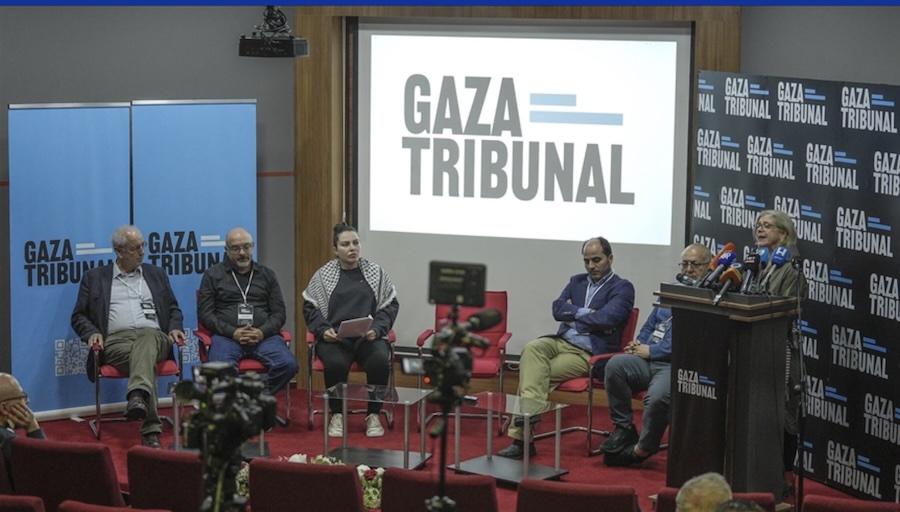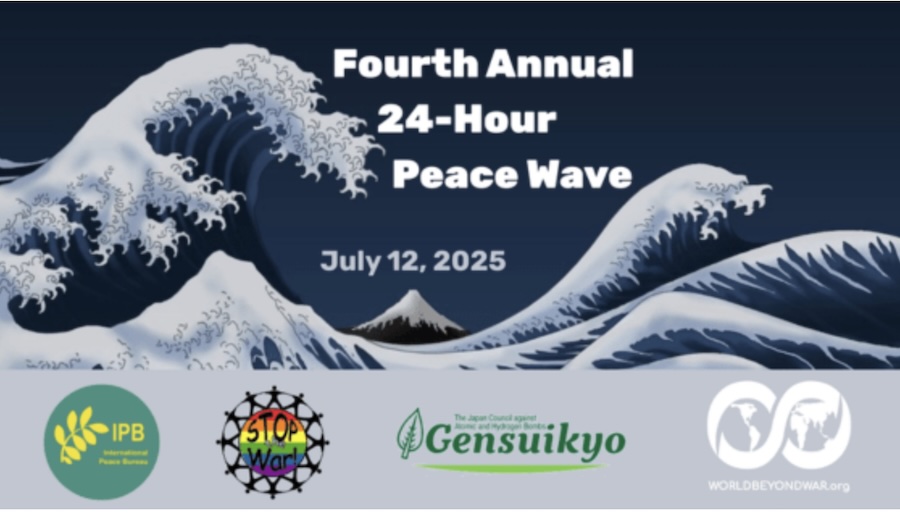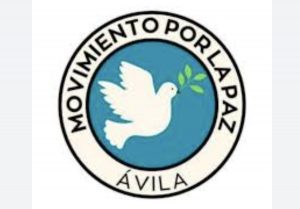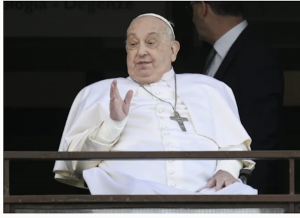DISARMAMENT AND SECURITY .
An article by Richard Falk from the Transcend Media Service
The Sarajevo Declaration of the Gaza Tribunal, a consensus document prepared in conjunction with participants in the first of two Public Sessions of the Gaza Tribunal, was released on 28 May 2025. The second session of the tribunal is scheduled for late October. The proceedings in Sarajevo consisted of survivor testimony from Gaza, invited expert speakers, a round-table on media complicity, and the reports of three chambers tasked with documenting evidence and consequences of alleged genocide and crimes associated with forcible application of the Settler Colonial Project to Gaza following 7 Oct, as well as the failure of the UN, growing public protests, and of leading governments to bring the genocide to an end in accordance with international law and hold the perpetrators accountable.

The Sarajevo Declaration is a comprehensive text intended to convey the orientation, broad scope of the goals of civil society solidarity activation and reflecting the diversity of concerns among members of the Gaza Tribunal community. Sarajevo was our chosen site to express symbolic solidarity with an earlier genocide at Srebrenica that occurred 30 years ago. Encourage wide sharing of the Sarajevo Declaration. It is my honor to serve as president of the GTP in concert with dedicated scholars, witnesses, and activists from around the world, including the inspiring participation of our Palestinian sisters and brothers.
The Sarajevo Declaration of the Gaza Tribunal
28 May We, the members of the Gaza Tribunal, having gathered in Sarajevo from 25 to 29 May 2025, declare our collective moral outrage at the continuing genocide in Palestine, our solidarity with the people of Palestine, and our commitment to working with partners across global civil society to end the genocide and to ensure accountability for perpetrators and enablers, redress for victims and survivors, the building of a more just international order, and a free Palestine.
We condemn the Israeli regime, its perpetration of genocide, and its decades-long policies and practices of settler colonialism, ethno-supremacism, apartheid, racial segregation, persecution, unlawful settlements, the denial of the right to return, collective punishment, mass detention, torture and cruel and inhuman treatment and punishment, extrajudicial executions, systematic sexual violence, demolitions, forced displacement and expulsions, ethnic purges and forced demographic change, forced starvation, the systematic denial of all economic and social rights, and extermination.
We are horrified by the Israeli regime’s systematic devastation of Palestinian lives, lands, and livelihoods, including its intentional destruction of all sources and systems for food, water, healthcare, education, housing, culture, as well as mosques, churches, aid facilities, and refugee shelters, and its targeting of medical personnel, journalists, aid workers, and United Nations staff, and its direct targeting of civilians, including children and older persons, women and men, girls and boys, persons with disabilities and those with medical conditions.
We demand an immediate withdrawal of Israeli forces and an end to the genocide, to all Israeli military action, to forced displacement and expulsions, to settlement activities, to the siege of Gaza and restrictions on movement in the West Bank. We call for the immediate and unconditional release of all prisoners, including the thousands of Palestinian women, men and children held in abusive Israeli detention facilities. We insist on the immediate resumption of massive humanitarian aid to all of Gaza without restriction or interference, including food, water, shelter, medical supplies and equipment, sanitary equipment, rescue equipment, and construction materials and equipment. We call as well for a complete withdrawal of all Israeli forces from all Lebanese and Syrian territory.
We call for an end of the smearing of UNRWA and other humanitarian workers, for the free and unhindered access of UNRWA and all other United Nations and humanitarian organizations in all areas of Gaza and the West Bank, for full compensation by the Israeli regime for damage caused to UN and humanitarian facilities, alongside full compensation and reparations to the Palestinian people, and for full accountability for the harassment, abduction, torture, and murder of UNRWA and other humanitarian workers and their families.
We call on all governments and on regional and international organizations to end the historic scandal of inaction that has characterized the past nineteen months, to urgently respond with all means at their disposal to end the Israeli assault and siege, to uphold international law, to hold perpetrators to account, and to provide immediate relief and protection to the people of Palestine.
We denounce the continued complicity of governments in the perpetration of Israeli war crimes, crimes against humanity, and genocide in Palestine, and the shameful role of many media corporations in covering up the genocide, dehumanizing Palestinians, and in the dissemination of propaganda fueling anti-Palestinian racism, war crimes, and genocide.
We equally denounce the wave of persecution and crackdowns on human rights defenders, peace activists, students, academics, workers, professionals, and others, perpetrated by Western governments, police agencies, the private sector, and educational institutions. We honor those who, despite this persecution, have had the courage and moral convictions to stand up and speak out against these historic horrors, and we insist on the full protection of the human rights of free expression, opinion, assembly, and association, as well as the right to defend human rights without harassment, retaliation, or persecution.
We reject the unjust tactic of smearing as “antisemites” or “supporters of terrorism” all those who dare to speak up and act to defend the rights of the Palestinian people and to condemn the injustices and atrocities of the Israeli regime and its perpetration of apartheid and genocide, or those who criticize the ideology of political Zionism. We stand in solidarity with all those who have been smeared or punished in this way.
We are convinced that the struggle against all forms of racism, bigotry, and discrimination necessarily includes the equal rejection of Islamophobia, anti-Arab and anti-Palestinian racism, and antisemitism. It also includes an acknowledgment of the horrific effects that Zionism, apartheid, and settler-colonialism have had and continue to have on the Palestinian people. We commit to fighting all such scourges.
We also reject the destructive ideology of political Zionism, as the official state ideology of the Israeli regime, of the forces that colonized Palestine and established the Israeli state on its ruins, and of pro-Israel organizations and proxies today. We insist, in the words of the Universal Declaration of Human Rights, that all human beings are born free and equal in dignity and rights, and that there are no exceptions to this rule. We call for decolonization across the land, an end to the ethno-supremacist order, and the replacement of political Zionism with a dispensation founded on equal human rights for Christians, Muslims, Jews, and others.
(article continued in right column)
Question related to this article:
How can war crimes be documented, stopped, punished and prevented?
How can a culture of peace be established in the Middle East?
(article continued from left column)
We are inspired by the courageous resistance and resilience of the Palestinian people in the face of over a century of persecution, and by the growing movement of millions standing in solidarity with them around the world, including the principled advocacy and nonviolent action of thousands of Jewish activists who have rejected the Israeli regime and its ethnonationalist ideology, and have declared that the Israeli regime neither represents them nor acts in their name.
We recognize the right of the Palestinian people to resist foreign occupation, colonial domination, apartheid, subjugation by a racist regime, and aggression, including through the use of armed struggle, in accordance with and as recognized in international law and as affirmed by the United Nations General Assembly.
We recall that the Palestinian right to self-determination is jus cogens and erga omnes (a universal rule not subject to exception and binding on all states) and is non-negotiable and axiomatic. We recognize that this right includes political, economic, social, and cultural self-determination, the right to return and full compensation for all harms suffered in a century of persecution, to permanent sovereignty over natural resources, and to non-aggression and non-intervention. We respect Palestinian aspirations and full Palestinian agency and leadership over all decisions affecting their lives, and we stand in solidarity with them.
We are gravely concerned at the direction of international relations, international politics, and international institutions, and by attacks on those international institutions that have challenged genocide and apartheid in Palestine. We believe that the normative foundations of the global order, grounded in human rights, the self-determination of peoples, peace, and the international rule of law, are being sacrificed at the altar of ruthless political realism and obsequious deference to power, with the people of Palestine left undefended and vulnerable on the front lines. We insist that another world is possible and intend to fight to bring it about.
We fear that the nascent and flawed international normative order, built up since the Second World War, with human rights at its center, is at risk of collapse as a result of the sustained attack waged on the system by the Israeli regime’s Western allies in their quest to buttress Israeli impunity. We pledge to oppose this attack and to work to protect and advance the project of building a world in which human rights are governed by the rule of law, beginning with the struggle for Palestinian freedom. And we believe that the weaknesses and inequities hard-wired into the international system from the start, including the geopolitical right of exception codified in the United Nations Security Council veto, the disempowerment of the General Assembly, and the structural obstacles that mitigate against the enforceability of International Court of Justice (ICJ) decisions, must be reformed and rectified.
We demand immediate action to isolate, contain, and hold accountable the Israeli regime through universal boycott, divestment, sanctions, a military embargo, suspension from International organizations, and the prosecution of its perpetrators, and we commit ourselves to this cause. We equally demand individual criminal accountability for all Israeli political and military leaders, soldiers, and settlers implicated in war crimes, crimes against humanity, genocide, or gross violations of human rights, as well as accountability for all persons and organizational actors guilty of complicity in the regime’s crimes, including external proxies of the Israeli regime, government officials, corporations, arms manufacturers, energy companies, technology firms, and financial institutions.
We applaud the International Court of Justice (ICJ) for its ongoing historic genocide case against the Israeli regime and for its landmark advisory opinion findings on the illegality of the Israeli occupation, of the apartheid wall, and of the Israeli practice of apartheid and racial segregation, and its findings that the rights of the Palestinian people are not dependent upon or subject to negotiation with their oppressor and that all states are obliged to abstain from treaty, economic, trade, investment, or diplomatic relations with Israel’s occupation regime. We celebrate the principled action of South Africa in bringing to the ICJ the historic genocide case against the Israeli regime.
We call on all states to ensure the implementation of all provisional measures adopted by the ICJ in the genocide case against Israel, to fully respect the findings of the ICJ in its advisory opinion of July 2024, to comply with all elements of the United Nations General Assembly resolution of 13 September 2024 (A/ES-10/L.31/Rev.1), ending all arms trade with and implementing sanctions on the Israeli regime, and to support accountability for all Israeli perpetrators. We urge civil society organizations and social movements around the world to initiate and strengthen campaigns to support the ICJ’s decisions and opinions on Palestine, and to press their own governments to abide by them.
We similarly applaud the International Criminal Court for (albeit belatedly) issuing arrest warrants for two senior Israeli regime leaders and call on the ICC to both expedite action on these cases and to issue further warrants for other Israeli perpetrators, both civilian and military. We call on all ICC State Parties to urgently act on their obligations to arrest these perpetrators and hand them over for trial, and we demand that the United States lift all ICC sanctions and cease all obstruction of justice.
We express our gratitude and admiration to the independent special procedures of the United Nations Human Rights Council for their expert contributions and for their strong and principled voices in holding the Israeli regime to account and defending the human rights of the Palestinian people. They have shown themselves to be the conscience of the organization, and we call on the United Nations and all member states to defend and support these mandate holders without fail. We applaud, as well, the principled action of those United Nations agencies that have acted to defend the rights of the Palestinian people and to provide aid and relief to the survivors of genocide in Palestine in the face of unprecedented risks and obstacles, foremost among them, UNRWA.
We believe that the world is approaching a dangerous precipice, the front edge of which is in Palestine. Dangerous forces in both the public and private spheres are pushing us toward the abyss. The events of the past nineteen months, and our own deliberations, have convinced us that both key international organizations and most countries of the world, whether acting individually or collectively, have failed in defending the human rights of the Palestinian people and in responding to the Israeli regime’s genocide in Palestine.
We are convinced that the challenge of justice now falls to people of conscience everywhere, to civil society and to social movements, to all of us. As such, our work in the coming months will be dedicated to meeting this challenge. Palestinian lives are at stake. The international moral and legal order is at stake. We must not fail. We will not relent.
– – – – – –
If you wish to make a comment on this article, you may write to coordinator@cpnn-world.org with the title “Comment on (name of article)” and we will put your comment on line. Because of the flood of spam, we have discontinued the direct application of comments.









